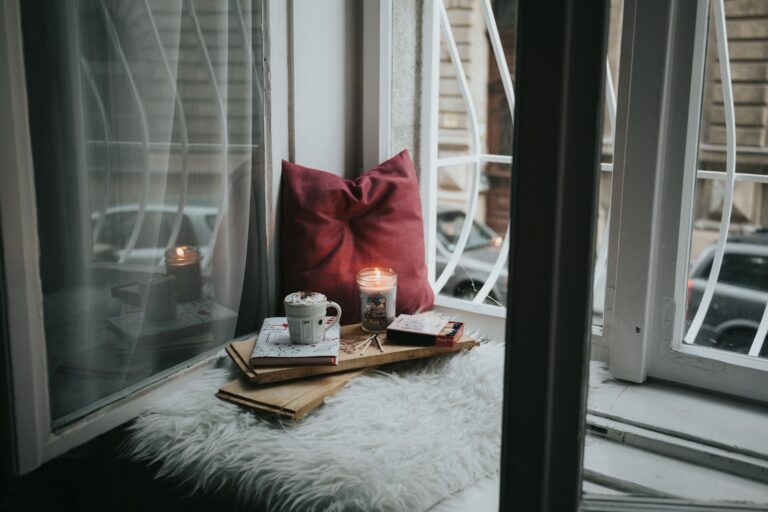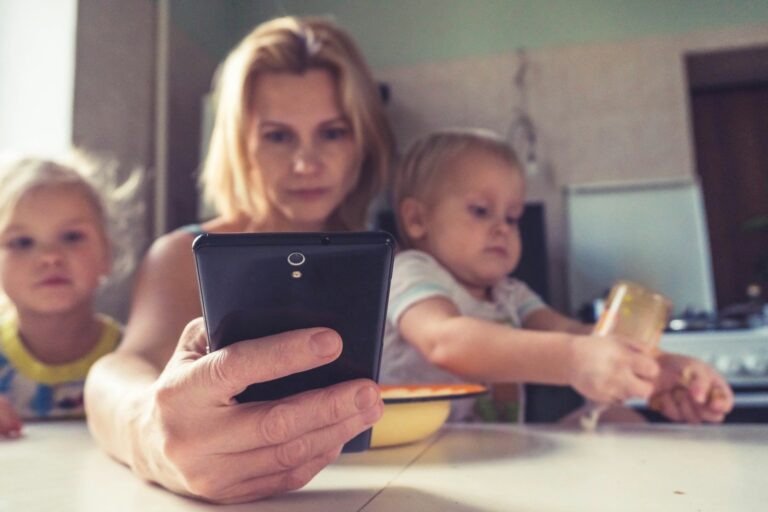This post contains affiliate links. If you make a purchase from one of the links, I may earn a commission at no extra cost to you.

Emotional Decluttering Tips for Daily Peace: 5 Simple Strategies to Clear Your Mind
Just like our homes fill up with stuff, our minds collect emotional baggage that can really drag us down. Stress, worry, old hurts, and negative thought loops pile up, making it tough to find peace. If you practice emotional decluttering every day, you can let go of some of that weight and open up space for more calm and joy.
Emotional clutter shapes how you feel and act, often in ways you barely notice at first. When you hang onto resentment, worry about things that haven’t even happened yet, or replay old mistakes, your thoughts eat up your energy. Unhealthy or draining relationships can make things even worse. Learning to spot and release these burdens lets you make room for better experiences and a healthier mind.
Physical and emotional decluttering go hand in hand. When you set boundaries with your stuff—like having a memory box for sentimental things—you keep attachments from taking over your space. Spending 10-15 minutes a day to tidy up digital clutter, like emails or unused apps, can also take some stress off your plate.
Key Takeaways
- Regular emotional decluttering helps lower stress and makes space for more peace and joy.
- Setting boundaries in relationships protects your energy and keeps you from getting drained.
- Combining physical, digital, and emotional decluttering is the most effective way to feel more at ease day to day.
Understanding Emotional Clutter
Our minds, just like our closets or junk drawers, can get crowded. Thoughts and feelings pile up and start to weigh us down.
What Is Emotional Clutter?
Emotional clutter is all the negative thoughts, unprocessed feelings, and mental baggage that fill up your head. It might look like:
- Worrying about what’s next
- Regretting things you can’t change
- Unresolved fights or issues
- Grudges you just can’t shake
- Harsh self-talk
You can’t see emotional clutter the way you see a messy room, but it’s there, making noise in the background. When your mind is crowded with these tough emotions, it’s hard to focus on what really matters.
Your emotional space needs the same kind of regular upkeep as your living space. If you let feelings pile up, your inner world can start to feel just as chaotic.
How Emotional Clutter Impacts Daily Peace
Emotional clutter messes with your day-to-day life in some pretty clear ways:
Sleep Quality: Racing thoughts can keep you up at night or leave you tossing and turning.
Decision Making: When your mind’s a mess, even small choices feel overwhelming.
Relationships: Toxic or draining relationships add to your emotional load.
Physical Health: Stress from emotional clutter can show up as headaches or muscle tension.
When your mind is full of clutter, you might feel tired all the time, snap at people, or just feel disconnected from yourself and others.
Recognizing Signs of Overwhelm
Noticing when emotional clutter is taking over is the first step. Keep an eye out for things like:
- Feeling exhausted even after a full night’s sleep
- Getting annoyed by little things
- Forgetting appointments or tasks
- Struggling to focus
- Dealing with headaches or stomach issues
Your body usually gives you a heads-up when mental clutter is piling up. If you catch yourself dodging certain thoughts or situations, that’s a sign too.
A lot of people don’t realize how cluttered their emotions have gotten until something snaps. Spotting these patterns early gives you a chance to do something about them.
Fundamental Emotional Decluttering Strategies
Clearing your mental space is a lot like tidying up your room. These simple approaches can help you let go of what’s weighing you down and make space for better things.
Letting Go of Lingering Emotions
First, figure out which emotions are draining you. Make a list—resentment, guilt, disappointments, whatever comes up.
Ask yourself, “Is holding onto this helping me?” If not, maybe it’s time to let it go. Hanging onto unhealthy emotions just adds stress.
Try this quick exercise:
- Write the emotion down
- Admit to yourself how it’s affected you
- Decide to let it go
- Destroy the paper (tear it up, burn it safely, toss it out)
It sounds simple, but the act of physically getting rid of the paper can help you move on.
Setting Healthy Boundaries
Boundaries are like fences for your mind. They protect your energy and help you have stronger relationships. Without them, people might wear you out without even realizing it.
Pick one relationship where you need clearer boundaries. Unhealthy relationships can be just as draining as a messy house.
Some boundary-setting tips:
- Use “I” statements: “I need some quiet time after work”
- Be honest but gentle
- Practice saying no without feeling guilty
- Limit time with people who constantly bring you down
Boundaries aren’t selfish. They’re about taking care of yourself so you can show up for others, too.
Practicing Mindfulness to Create Space
Mindfulness helps you notice what’s going on inside without getting overwhelmed. Even a few minutes a day can make a difference.
Try this quick meditation:
- Sit somewhere comfy, close your eyes
- Focus on your breath for a minute
- Notice any emotional “clutter” without judging it
- Imagine letting go of those feelings with every exhale
- Take three deep breaths to finish up
Emotional decluttering is just as important as clearing physical mess. Sneak in mindful moments during the day—while you’re washing dishes, walking, or before a tough conversation.
Daily Techniques for Lasting Peace
Keeping your mind clear takes some daily effort, but it doesn’t have to be complicated. Here are a few habits that really help.
Journaling for Clarity and Focus
Spend 10 minutes in the morning writing out your thoughts and feelings. It helps you spot patterns and quiets mental chatter.
Easy journaling ideas:
- Morning pages: just write whatever’s on your mind
- Gratitude lists: jot down three things you’re thankful for
- Worry dump: get your worries on paper, then move on
Journaling regularly can lower stress and help you make better choices. Leave your journal somewhere you’ll see it to remind yourself.
You don’t need anything fancy—a plain notebook works, or you can use apps like Day One or Journey if you want privacy. The key is making it a habit before your day gets busy.
Embracing Simplicity Through Minimalism
Minimalism isn’t just about less stuff—it’s about making space for what matters. Try focusing on one area each week.
Start with something you see a lot, like your desk or kitchen counter. Ask yourself, “Does this really add value to my life?” If not, maybe it’s time to let it go.
Simple steps:
- For every new thing you buy, get rid of something old
- Clear out digital clutter (emails, photos, apps)
- Say no to things that don’t fit your priorities
Taking photos of sentimental objects before letting them go, like suggested here, can help you keep the memory without the mess.
It’s not about being perfect—it’s about making progress toward a life that feels lighter.
Developing Supportive Routines
Having routines can really ground you. A solid daily routine adds structure and helps cut down on stress.
Try starting and ending your day with some simple habits.
Morning ideas:
- Five minutes of deep breathing or meditation
- Pick your top 1-3 tasks for the day
- Stretch or move your body a little
Evening ideas:
- Turn off screens an hour before bed
- Read something light or stretch
- Get ready for tomorrow
Stick with your routine for 21 days to see real change. Use reminders or a tracker to help you stay on course.
The 90/90 Rule for Emotional Items
The 90/90 rule is a quick way to decide what to keep. Ask, “Have I used this in the last 90 days? Will I use it in the next 90?”
If the answer’s no, it’s probably time to let it go. This works for:
- Clothes you never wear
- Books you keep meaning to read
- Gifts you feel guilty about giving away
For truly special things, use a memory box with clear limits. A dedicated box lets you save what matters without letting it take over.
Go through your memory box every six months. You might find some things just aren’t as important as they once were.
Managing Physical and Digital Clutter for Mental Clarity
The spaces around you—even your phone—affect how you feel. Tidying up both physical and digital areas can really help your mind feel clearer.
Reducing Physical Clutter in Your Environment
Try this: if you haven’t used something in a year, let it go. A tidy home supports a calmer mind.
Don’t try to do it all at once. Set a timer for 15 minutes and focus on one small area, like a drawer or shelf.
Use the four-box method: keep, donate, trash, store. It makes decisions easier and keeps you organized.
Whenever you bring something new home, get rid of something else. This helps keep your space balanced.
Physical order saves you time and mental energy. You’ll spend less time searching for stuff and less energy feeling stressed by mess.
Handling Sentimental Items Without Guilt
Sentimental stuff is tough. Try taking photos of special items before letting them go—this way, you keep the memory without the clutter.
Limit yourself to a “memory box” for truly meaningful things. The small space forces you to pick what matters most.
Ask yourself, “Does this item bring me joy, or just guilt?” The feeling it gives you is what counts.
If you’ve inherited things, remember you don’t have to keep everything to honor someone’s memory. Pick a few pieces that really mean something.
If you can, share sentimental items with family who’ll appreciate them. It spreads happiness and lightens your load.
Controlling Digital Clutter and Notifications
Digital mess is sneaky but stressful. Start by sorting files into folders with clear names.
Turn off notifications you don’t need. Each ping breaks your focus. Pick set times to check messages.
Unsubscribe from emails you never read. A cleaner inbox feels so much better.
Delete apps you don’t use and group the rest into folders. Try to keep your home screen simple.
Set aside time to clean up your digital space regularly—delete old files, organize photos, tidy your desktop.
Take a digital detox day every week if you can. Give yourself a break from screens and do something offline that refreshes your mind.
Frequently Asked Questions
Most of us deal with emotional clutter that gets in the way of feeling peaceful. Here are some common questions and practical tips to help you clear your mind and make space for what matters.
What steps can one take to simplify their emotional landscape for daily tranquility?
First off, try figuring out what’s actually stressing you out. Make a quick list—maybe it’s certain people, situations, or even some thoughts that just zap your energy.
Setting boundaries is huge. Don’t be afraid to say “no” when you’re already stretched thin. Protecting your mental space is worth it.
Spend a few minutes each day practicing mindfulness. Even five minutes helps. You’ll start to notice your emotional patterns without beating yourself up, and that little bit of space can make a big difference.
If some relationships feel heavy or draining, it might be time to declutter your relationships. Not every connection is meant to last forever, and that’s okay.
Can you suggest strategies to detach from sentimental items without feeling guilt?
Take a photo of the item before you let it go. That way, you keep the memory but get back some space.
Try using a memory box for things that really matter. Limit yourself to that box, and it’ll help keep your space—and your emotions—tidier.
Honestly, it’s okay to let go of stuff, even if it once meant a lot. Holding on to everything just leads to clutter and makes it harder to enjoy right now.
Ask yourself if something makes you happy today, not just in the past. If it doesn’t fit your life anymore, thank it (sounds cheesy, but it helps) and let it go.
What routines should be adopted to maintain a minimalist emotional state?
Try doing a daily “thought download.” Spend about 10 minutes in the morning writing whatever’s on your mind. It helps clear out mental clutter before it piles up.
Go for regular digital detoxes. Turning off notifications and cutting back on social media can do wonders for your headspace.
Once a week, look back at what went well and what didn’t. It’s a good way to tweak your emotional habits for next time.
At night, have a little routine to wind down. Maybe jot down any worries so you’re not carrying them into bed with you.
How does emotional decluttering impact mental health and daily well-being?
Cutting out emotional clutter really does help with anxiety. You stop worrying about stuff that doesn’t matter.
It can help you sleep better, too. When your mind isn’t spinning with old worries, falling asleep gets easier.
You’ll probably notice your relationships improve, since you’re not so weighed down. It’s easier to actually show up for the people around you.
Decision-making? Way less overwhelming. With a clearer mind, you can choose what actually lines up with your values.
What techniques help to let go of past memories that clutter our present thoughts?
The “write and burn” trick is worth trying. Jot down the tough memory, really acknowledge it, then burn the paper (safely, of course). It’s a little ritual that helps you move on.
Remember, our belongings tell stories about who we are and where we’ve been. Sometimes just understanding that connection makes it easier to let go.
Forgiveness meditation can help too. Picture the person or situation, and quietly say, “I forgive you” or “I release this.” It’s simple but surprisingly powerful.
If certain memories just won’t let go, don’t hesitate to reach out for professional help. Sometimes you need a little extra support, and there’s nothing wrong with that.
How often should one engage in emotional decluttering to ensure sustained peace?
Honestly, quick daily check-ins—just 5 to 10 minutes—can make a surprising difference. Take a little time to notice your feelings and let go of any tension that’s crept in.
Every month or so, it’s worth going deeper. Maybe block out an hour or two to journal, think things through, or sit with any bigger emotions that have piled up.
When the seasons change, that’s a natural cue to pause and see how you’re really doing. Sometimes those shifts make you realize you need to adjust your emotional routine.
And if you catch yourself getting irritable or just plain overwhelmed? That’s your sign—it’s probably time for a bit of emotional decluttering, even if it’s not on the calendar.



